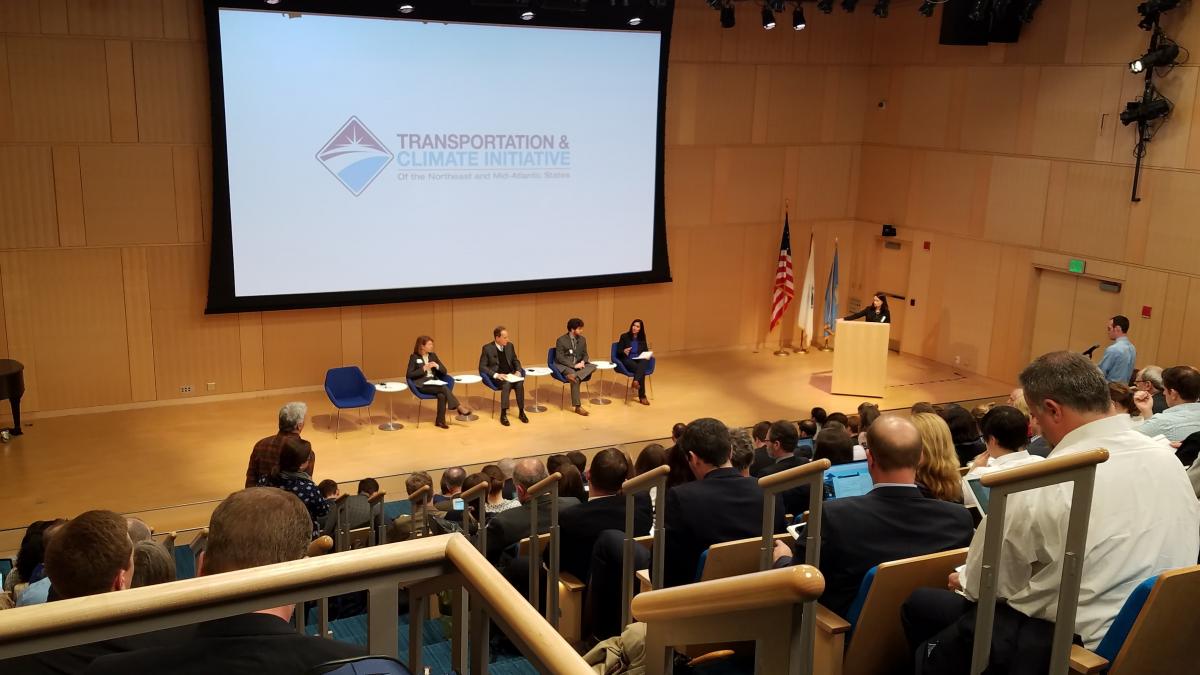Technical Workshop: April 30, 2019 in Boston
Technical Workshop: Regional Cap and Invest for Transportation, Key Design Elements
April 30, 2019 • 8:30 am to 5 pm • Boston Public Library, Rabb Auditorium • 700 Boylston Street, Boston, MA 02116
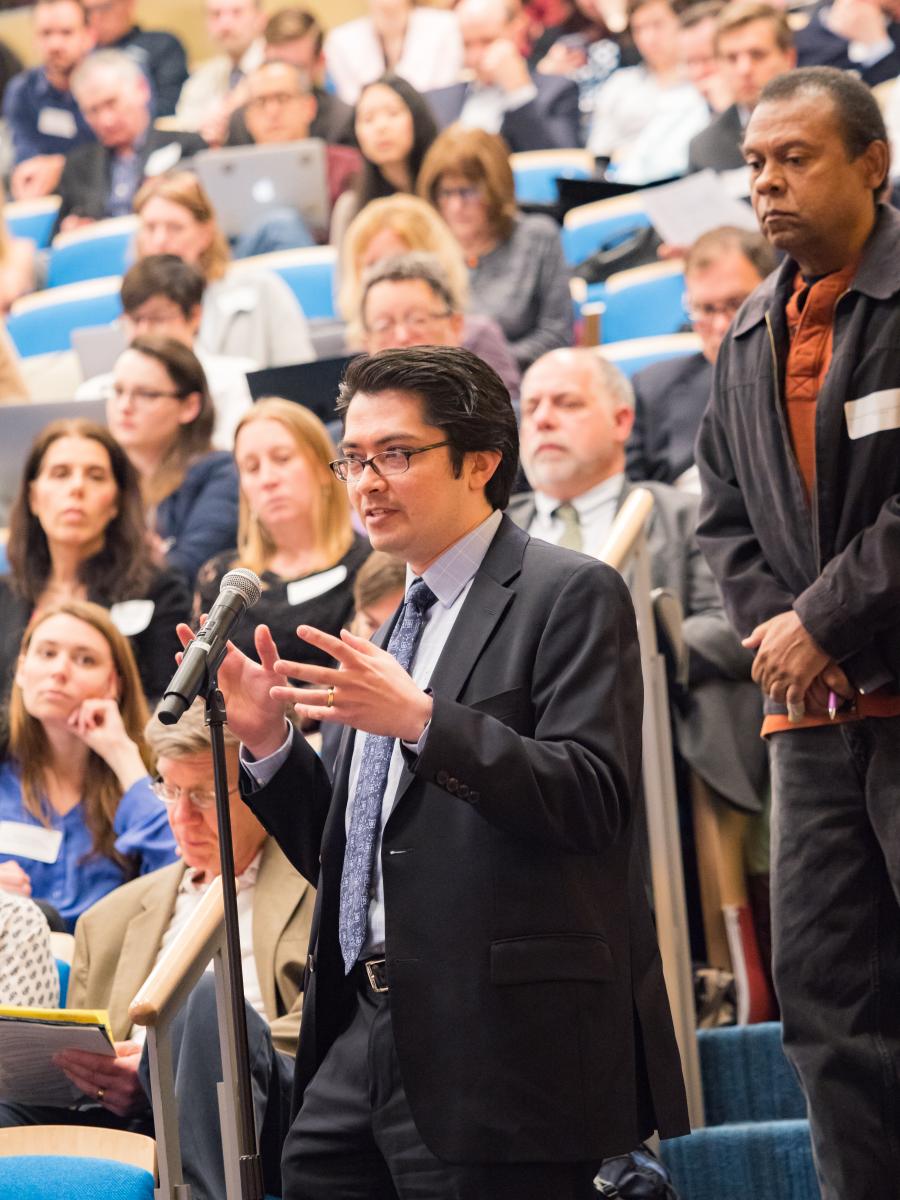
On Tuesday, April 30, interested stakeholders from across the TCI region gathered at the Boston Public Library for a full day technical workshop on design elements of a regional cap and invest approach to reducing emissions from transportation. Close to 250 people attended, and nearly 100 tuned in via online livestream for all or part of the day. Participants included representatives from transportation and fuels businesses, residents of frontline communities, and members of non-governmental advocacy organizations, among others. Incoming Massachusetts Energy and Environmental Affairs Secretary Kathleen Theoharides and Maryland Deputy Secretary of Transportation Earl Lewis, the chair and vice chair of TCI’s leadership team, provided welcoming remarks. Georgetown Climate Center executive director Vicki Arroyo shared background on TCI’s regional policy design process and the outreach states conducted in 2018, and encouraged attendees to ask questions and provide input both in person and via the public input form on the TCI website.
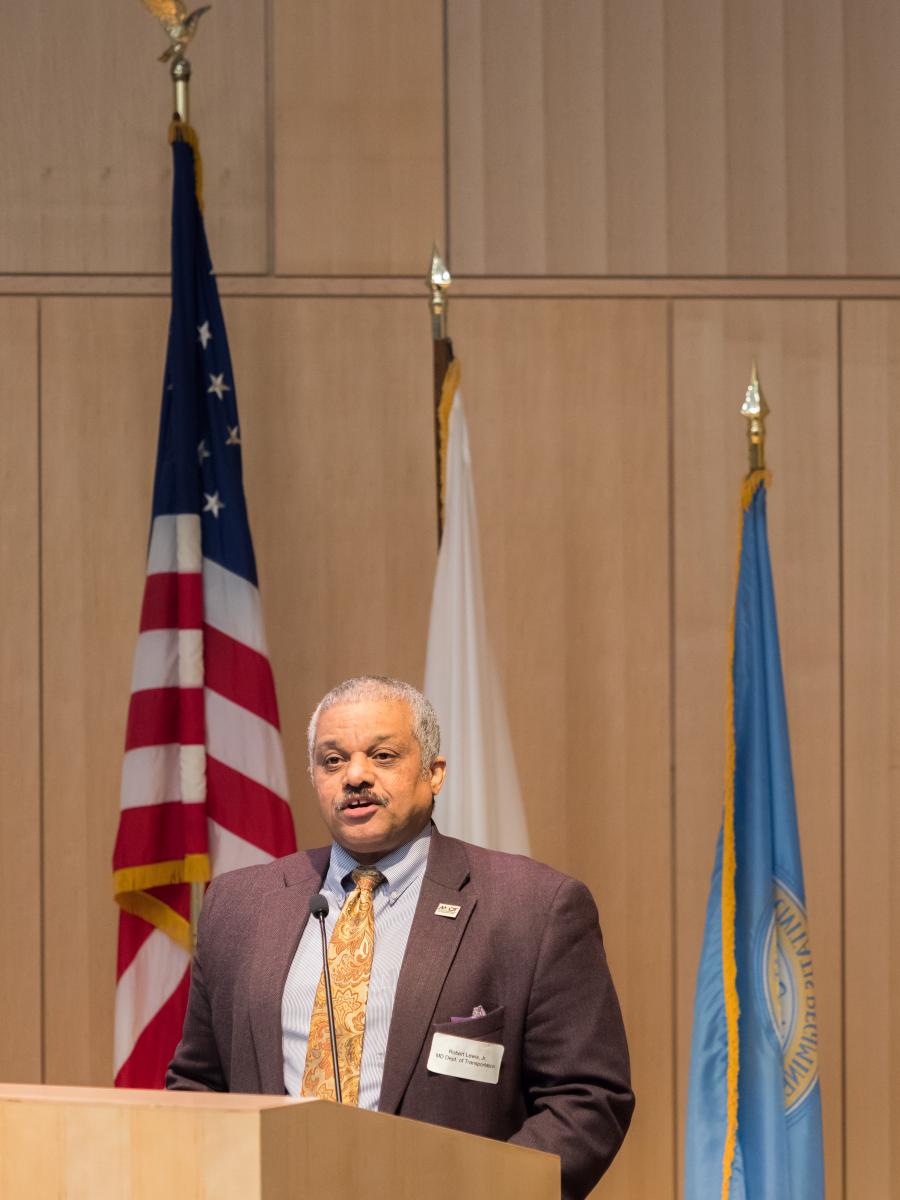
View the full April 30 event agenda.
The day’s program featured four panels, each featuring presentations and discussion moderated by a state agency official. Members of the audience actively participated in the question and answer sessions following each panel, sharing their own insights and experiences and making suggestions to inform the policy proposal design process.
Event Livestream Recordings:
Opening Presenter Slides:
- Welcoming Remarks, Vicki Arroyo, Georgetown Climate Center
- Workshop Overview, Joe Kruger and James Bradbury, Georgetown Climate Center
Panel 1: Fuel Coverage, Compliance, and Approaches to Monitoring and Reporting
The first panel, on Fuel Coverage, Compliance and Approaches to Monitoring and Reporting, detailed the complexity of the regional fuel supply system, and yielded insights from stakeholders and experts on ways to design a monitoring, reporting and compliance system that works for the region. The conversation also pointed to the many opportunities for TCI to draw on the experience of other existing cap-and-invest programs in the region and beyond, including the Regional Greenhouse Gas Initiative (RGGI), California, Quebec and federal emissions reporting systems. Experiences in California and Quebec, for example, illustrate that complementary, or companion, programs will likely be important for TCI jurisdictions to achieve desired policy outcomes, including GHG reductions, improved air quality, safety, and other social and economic goals. Investments of program proceeds can be targeted toward these goals, while additional new and existing federal, state and local programs will also continue to be needed.
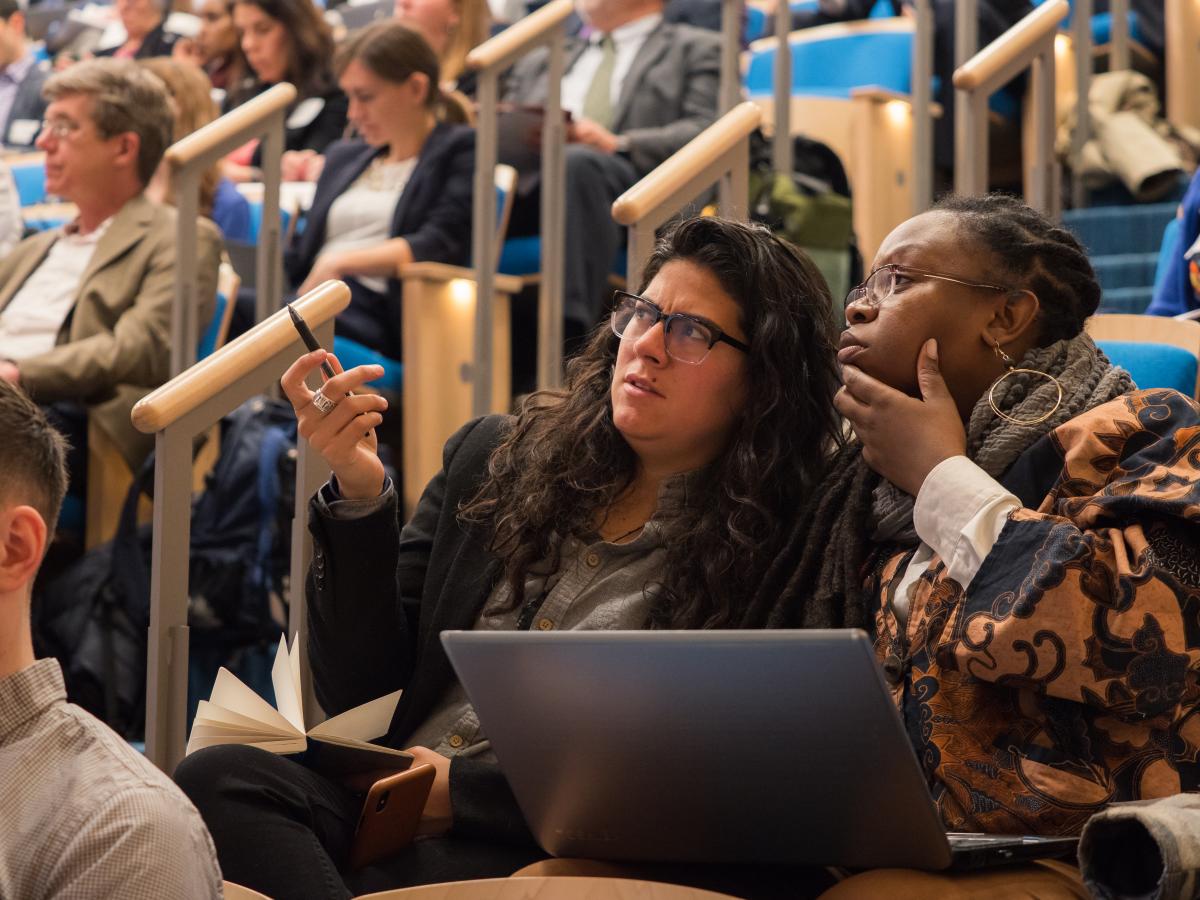
Panel 1 Presenter Slides:
- Fuel System Considerations in the TCI Region, Drew Veysey, Georgetown Climate Center
- Regulation of Fuel Suppliers: Mandatory GHG Reporting and Cap-and-Trade Program, Rajinder Sahota, California Air Resources Board
- Respondent: Steven Levy, Sprague Energy
- Respondent: Coralie Cooper, Northeast States for Coordinated Air Use Management
Livestream recording: TCI Technical Workshop: Welcome & Panel 1
Panel 2: Cost Containment, Compliance Flexibility, and Linking
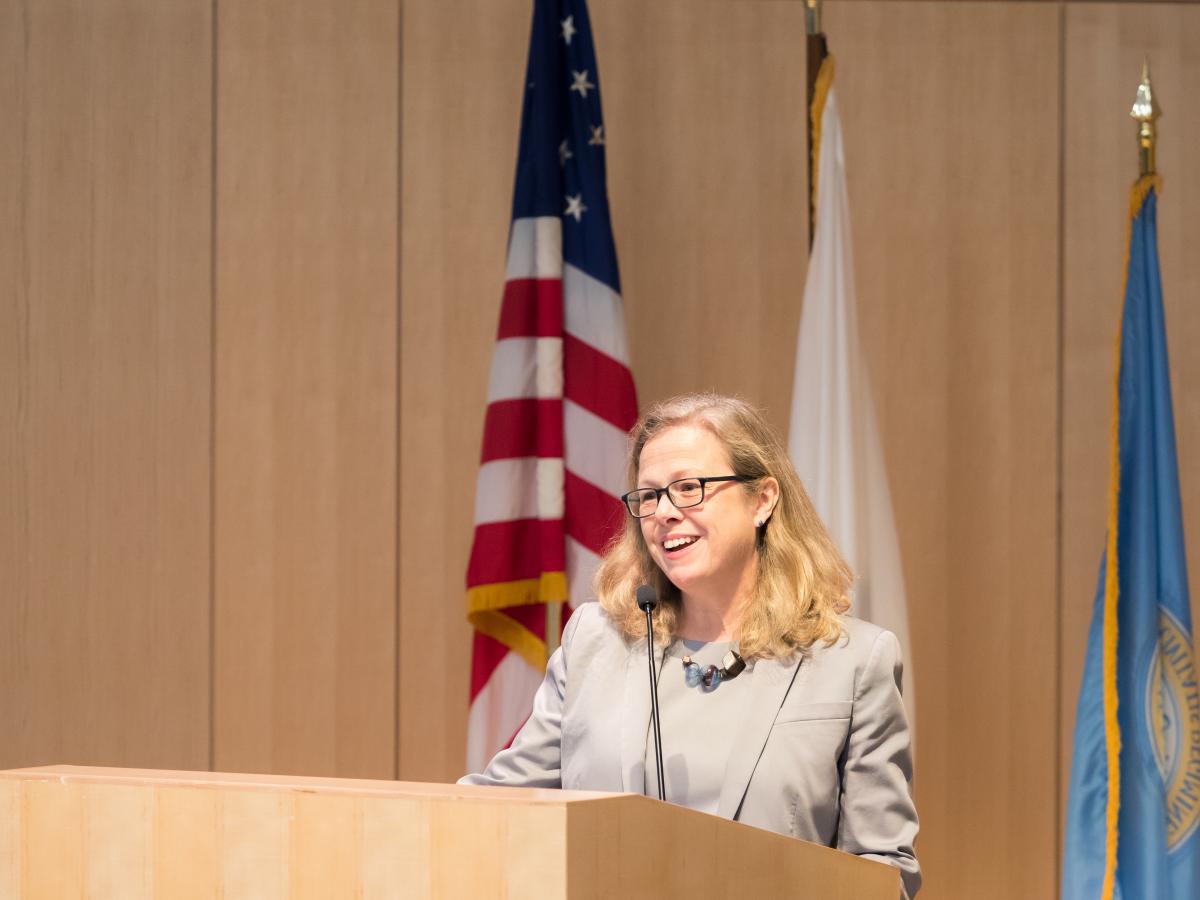
The second panel focused on Cost Containment, Compliance Flexibility and Linking. For market-based emission reduction programs – like the cap-and-invest programs that TCI states are proposing – compliance flexibility has the potential to lower the cost of emissions reductions and facilitate greater program ambition. Presenters pointed out that some of this flexibility is intrinsic to the cap and invest model, while price-responsive mechanisms such as price ceilings and floors could also be considered.
Panel 2 Presenter Slides:
 Options for Managing Costs in Carbon Markets, Karen Palmer, Resources for the Future
Options for Managing Costs in Carbon Markets, Karen Palmer, Resources for the Future- RGGI approach, insights from recent analysis of Midwest Roadmap, Franz Litz, Litz Energy Strategies LLC
- Quebec's Cap-and-Trade Program, Jean-Yves Benoit, Quebec Ministry of the Environment and the Fight Against Climate Change
- Respondent: from Ken Kimmell, Union of Concerned Scientists
Livestream Recording: TCI Technical Workshop: Panel 2
Panel 3: Modeling Transportation and Energy Systems for TCI
The third panel examined the various factors involved in Modeling Transportation and Energy Systems for TCI. The moderator and panelists described modeling tools that TCI states plan to use to evaluate how a proposed regional program could affect communities, the economy and energy systems. Presenters underscored that each modeling approach has strengths and weaknesses, which is why TCI states have brought in several modelers to round out the suite of tools used for analysis to inform regional transportation policy analysis. Another theme was that models can help to inform how policy can change real-world outcomes directionally, but they provide insights, not definitive answers or predictions. Panelists also cautioned that as programs are developed and implemented, data from real-world outcomes should be compared to initial projections, and model inputs and assumptions should be reevaluated accordingly.
Panel 3 Presenter Slides:
- Transportation and Climate Initiative Modeling Framework Overview, Chris Hoagland, Maryland Department of Environment
- Analyzing Transportation Policies using the National Energy Modeling System (NEMS), Tracy Terry, OnLocation, Inc.
- Transportation Strategies and Analysis, Chris Porter, Cambridge Systematics, Inc.
Livestream Recording: TCI Technical Workshop: Panel 3
Panel 4: Estimating Equity and Health Implications of TCI
 The day’s final panel detailed plans for modeling aimed at Estimating Equity and Health Implications of TCI. Presenters made clear that there are a broad range of transportation-related impacts to public health, including air pollution, noise and safety. The benefits of investments in transit and other low-carbon transportation strategies include improved health resulting from increased physical activity and improved air quality. In addition to reducing GHG emissions, lower carbon transportation has the potential to reduce toxics and criteria air pollutants while addressing other urgent threats to public health and safety in overburdened and underserved communities. The panel also explored ways to minimize program costs to households. Speakers and audience members noted that such analysis is not a substitute for ongoing community engagement. State leaders and panelists emphasized that TCI states see these as among the most critical questions to address and they are committed to working with communities throughout the region to understand and address these concerns.
The day’s final panel detailed plans for modeling aimed at Estimating Equity and Health Implications of TCI. Presenters made clear that there are a broad range of transportation-related impacts to public health, including air pollution, noise and safety. The benefits of investments in transit and other low-carbon transportation strategies include improved health resulting from increased physical activity and improved air quality. In addition to reducing GHG emissions, lower carbon transportation has the potential to reduce toxics and criteria air pollutants while addressing other urgent threats to public health and safety in overburdened and underserved communities. The panel also explored ways to minimize program costs to households. Speakers and audience members noted that such analysis is not a substitute for ongoing community engagement. State leaders and panelists emphasized that TCI states see these as among the most critical questions to address and they are committed to working with communities throughout the region to understand and address these concerns.

Panel 4 Presenter Slides:
- Understanding the Health Implications of Climate Mitigation Strategies for Transportation, Kathy Fallon Lambert and Jonathan Buonocore, Harvard T.H. Chan School of Public Health
- Cap and Invest: Understanding the Impact on Households, Amelia Keyes, Resources for the Future
- Respondent: Lee Matsueda, Alternatives for Community & Environment
Livestream Recording: TCI Technical Workshop: Panel 4
Submit your input online
You are invited to contribute suggestions, ideas, and other input through TCI's online form.
PLEASE NOTE: All input submitted via this form, including the names and affiliations of those providing the input, will be published on this website on an ongoing basis. Click here to view current submissions from stakeholders.
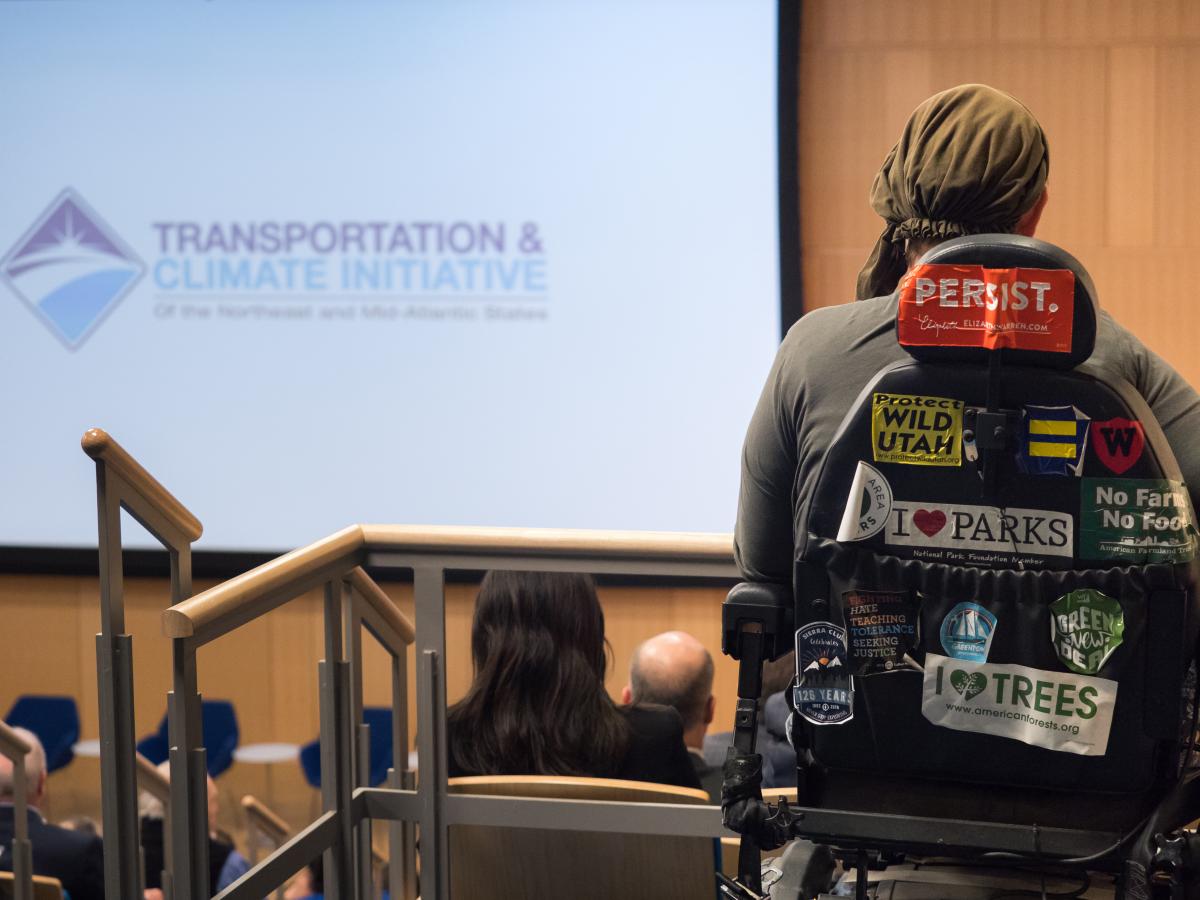
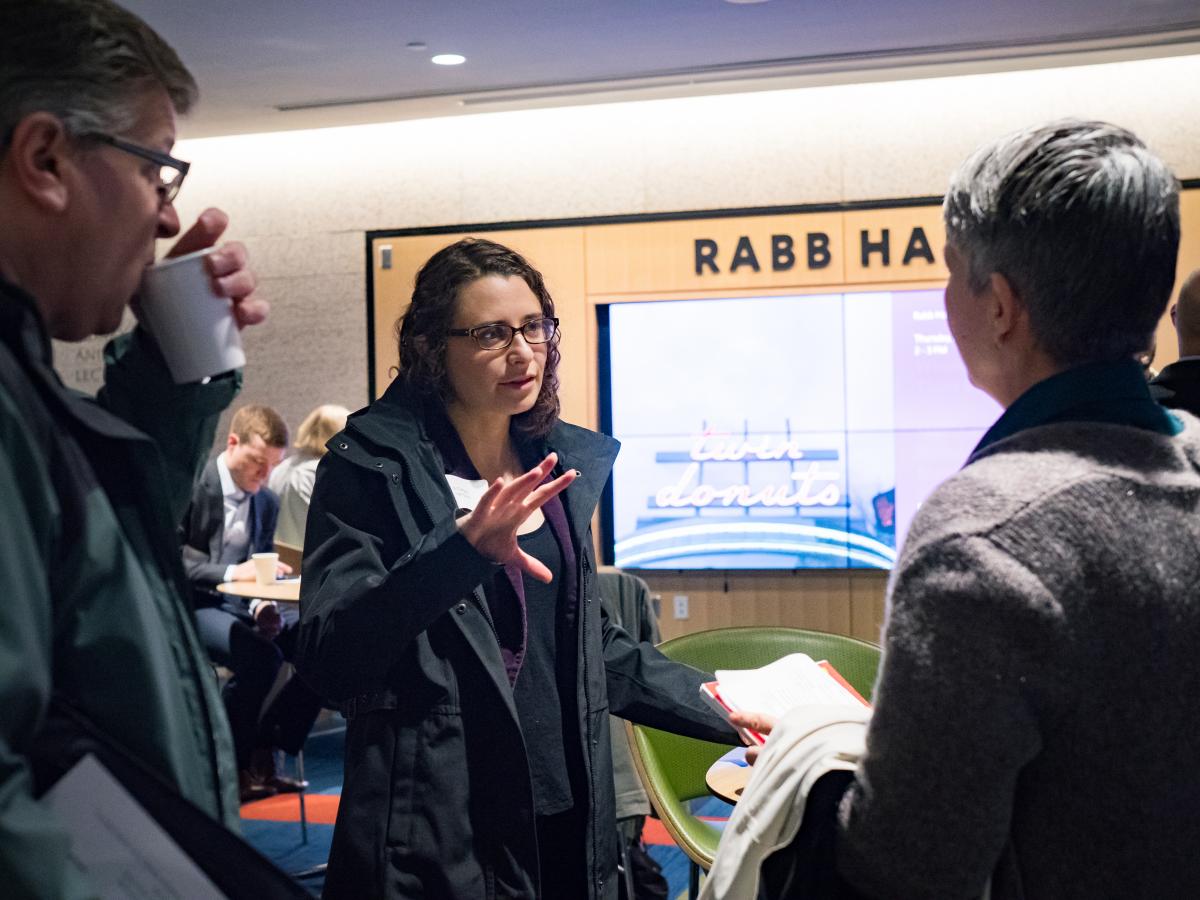
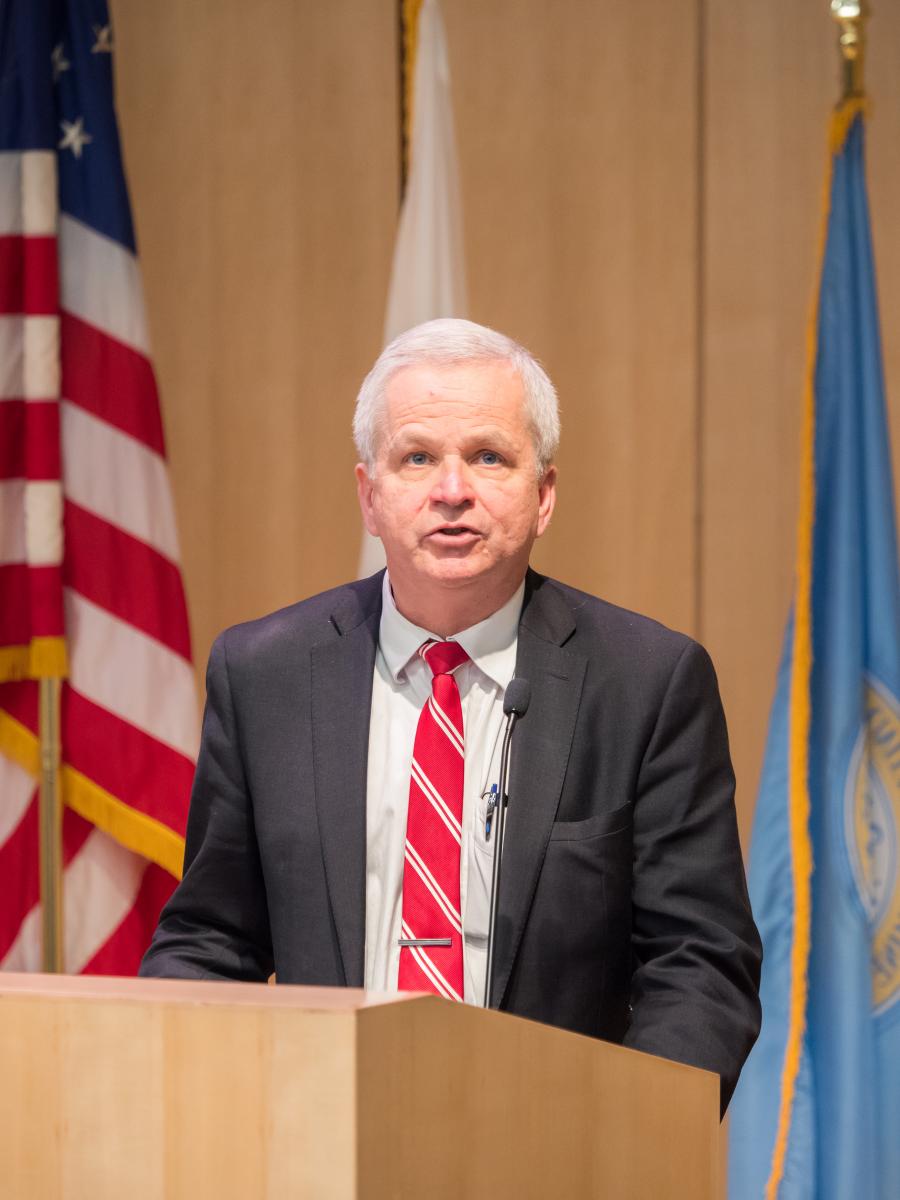
About the TCI Regional Low-Carbon Transportation Policy Development Process:
TCI is a collaboration of state environmental, energy, and transportation agencies that are working together to develop a regional policy for low-carbon transportation, following the December 18, 2018 statement by nine states and Washington D.C. committing to:
“…design a regional low-carbon transportation policy proposal that would cap and reduce carbon emissions from the combustion of transportation fuels through a cap-and-invest program or other pricing mechanism… [and]… to complete the policy development process within one year, after which each jurisdiction will decide whether to adopt and implement the policy.”
This is the first regional workshop TCI states will be holding this year on a variety of topics. These events will serve as important opportunities for TCI jurisdictions to consult with experts, businesses, residents, communities, and other stakeholders who may inform a regional low-carbon transportation policy, and for stakeholders to provide input and engage with the program development process. Learn more about this process.

